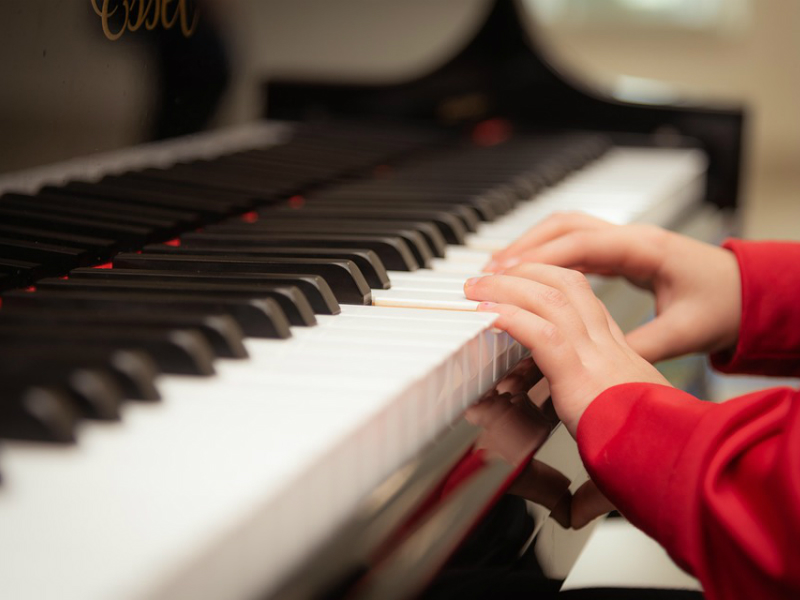If there’s one place I find peace and replenishment, it’s at my piano. A hobby I started at the age of eight, music has been a journey fraught with enrichment, frustration, reward, discipline, despair and hope. I’ve learned how deeply gratifying it can be to study a piece of music until it is played well, whether it’s Rachmaninoff’s brooding chords or Chopin’s lightning fast lyrical passages. My time at the piano has given me an appreciation for the unrivalled, timeless talent of the great composers, and their music continues to compel and amaze me, hundreds of years after it was first created.
My piano has been both magnet and foe, a source of inspiration and solace, a place of intense focus and concentration, and the site of compounded frustration as I’ve waged countless battles against increasingly complex bars of music, determined to master them.
My piano is an inauspicious upright, the same instrument I learned on at the age of eight. It’s followed me in a shipping crate from South Africa to Saskatchewan, Ontario to Massachusetts and Texas to British Columbia, where it stands today. Piano tuners from all over the world left their signatures inside as their tuning forks returned just the right pitch and tone to the keys. After one move left the instrument badly scratched, I sanded and stained each piece of wood by hand, determined to return its beauty. It was an act of love for an instrument that has been in my family for four decades.
This was the instrument my mother excitedly brought home for her little girls in the late 1970s, and the one my grandmother touched before she left for the hospital and never returned.
The piano has contributed so much growth, knowledge and gratification to my life that, naturally, I wanted my children to experience this, too. One by one, they began lessons with great intentions, and one by one, they discontinued their tutelage because the concept of having to practise, of working regularly at the task to achieve a result, was something they were unwilling to do.
Recently, my 10-year-old daughter informed me she was throwing in the towel on her piano lessons. Though I’d suspected the moment was coming, I had to swallow hard to hide my disappointment. She’d spent two years learning the rudiments under the guidance of a gentle, kind teacher, until she could read easy music with some fluency and even perform in a recital. I’d watch in envy as her young, healthy brain memorized her piano pieces in minutes – something my mid-40s brain can no longer do. Though she showed signs of musicality, the one thing she didn’t want to do was practise.
Gradually, my insistence that she spend time daily on the piano bench became a war of wills, my kid vehemently refusing to yield to methodical practice and me threatening to take away the things she loved if she didn’t. As the scenes between us became louder and uglier, I realized it wasn’t a war worth fighting. You can’t make someone want to excel at something, nor can you force them to feel satisfaction at the relationship between hard work and consequent achievement. I didn’t want the piano, an instrument intended to bring beauty, joy and delight, to gnaw and erode our relationship. It just made more sense to let it be.
READ: MARRIED WITH KIDS: THE IMPORTANCE OF GOOD BEDSIDE MANNER
I sit alone in the music room now, and when I need a break from the classical composers, I tinker with the melodies of Naomi Shemer’s Al Kol Eleh, Adon Olam and the Yiddish song Tumbalalaika. I play for an invisible audience. Upstairs, my kids are listening to the top hits on Spotify, while my husband watches Netflix, each member of the family in a little world of their own.
I comfort myself with the thought that one day far in the future, maybe they will remember the melodies that rang through our home, just as I now long for the tunes my mother played long ago. Perhaps they will come back to the piano in their later years, determined to make it sing. Or maybe it will just gather dust in the corner of someone’s home, a family member too nostalgic to throw it out, but completely disinclined to use it. The unplayed keys will gradually lose their tune and the music I loved will become fodder for moths and fall apart. One day, someone will discover my piano was built in the 1950s. “It’s too old to be any good,” they will say. “This thing has to go.”
